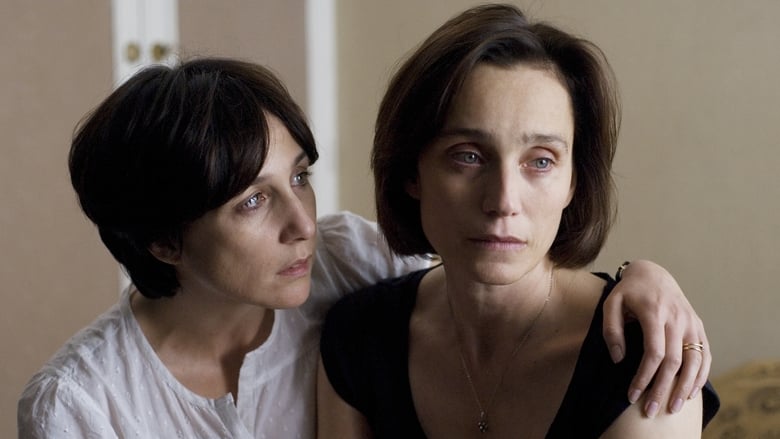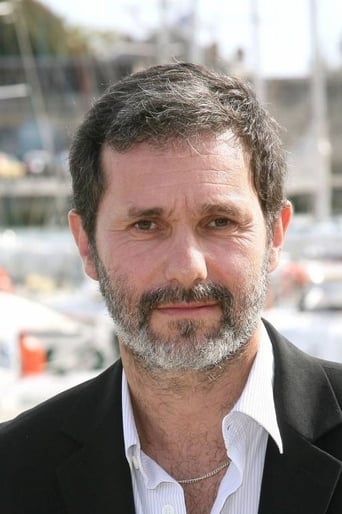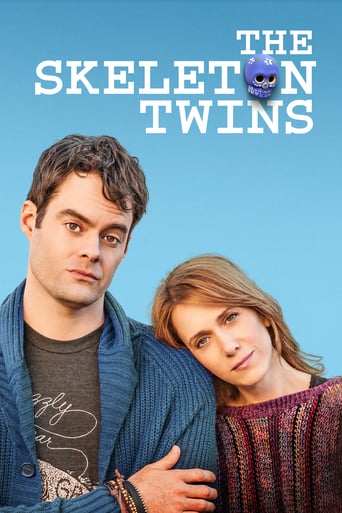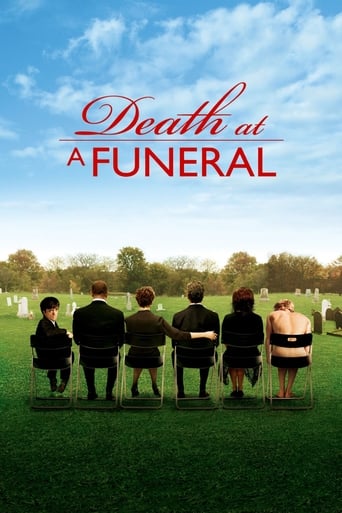

I've Loved You So Long (2008)
A woman struggles to interact with her family and find her place in society after spending fifteen years in prison.
Watch Trailer
Cast


Similar titles
Reviews
Juliette Fontaine (Kristin Scott Thomas) has been released from prison after fifteen years for murdering her six year old son. She is welcomed into the home of her younger sister Léa (Elsa Zylberstein). Léa's husband isn't that happy about it. She has two adopted daughters. She is scarred by the incident. Juliette has always been a shameful family secret and is closed off. People usually abandon her when they learn of her crime.I'm glad that murdering her son is revealed early on. It could have been an annoying secret to hold over the audience. Kristin Scott Thomas gives a quietly nuanced performance. Elsa Zylberstein is even better as the damaged younger sister. The slow ponderous pace gives a moody tone although the final reveal wraps it up in a big melodramatic scene. The best scene is the dinner party.
Any Led Zeppelin fans out there? Either way, I wanted to start by drawing attention to the confusing translation of this film's title into English. The French phrase "Il y a longtemps que..." is better translated as "It's been a long time since..." It implies a sense of nostalgia and possible regret or loss. So instead of being called "I've Loved You So Long", it should've probably been "It's Been a Long Time Since I Loved You". Even that translation is imperfect, so you may just have to listen to the Zeppelin song to get what I mean.Why is this important? Because the entire film is done with a haunting sense of nostalgia, regret & melancholy as the proper title should imply. But also, as the title should imply, it's not necessarily depressing or final. I thought the film pulls it off brilliantly. The subject is very dark & gloomy, yet the film doesn't descend to being dark & gloomy itself. Instead, like a good murder mystery, it allows us to peel away at the dark truth while not getting dragged down ourselves. This is done by keeping us out of the main character's troubled past until the very end. As a result, we don't form prejudices that would taint our objectivity.And that's what this film is about: society's prejudices. Not in a overt way, but with subtlety the way director Clint Eastwood likes to do ("The Unforgiven", "Gran Turino", "Midnight in the Garden of Good & Evil"). Films like this challenge us to see 'villains' in a different light, and they expose society's folly in labeling them thus.In this film, Kristin Scott Thomas plays a woman who, for cloaked reasons, is discarded by society. Her unwillingness to explain herself only deepens the disconnect. The motives for her bizarre behaviour remain a mystery until the end, forcing our imagination to remain on high alert throughout the entire film. Without any car chases, gunfire or monsters, this film still manages to create a great atmosphere of suspense & anticipation. In that regard it's similar to "Five Minutes of Heaven" (2009), "Leaving Las Vegas" (1995) or the obscure Japanese flick "Shiki-jitsu" (2000), all excellent films that derive their suspense from slowly peeling away the psychology of a troubled character.Kristin's performance is simply amazing. It would be easy for an actor to play the role as a victim, a depressed person feeling sorry for herself, but no. Kristin plays it with an air of strength and quiet, desperate dignity. And in the end we realize that's exactly how it should be. Don't miss the chance to see this great film!
There is very little to say about "I've Loved You So Long" other than I didn't really like it. The pacing is suitably slow for a very dreary storyline with very little going on. At almost two hours long, it does begin to get tedious if it wasn't for Plum (Kristen Scott Thomas, don't be alarmed if I call her Plum).This type of film has been done before, but much better. The writing isn't anything particularly new or suspenseful. The idea is of a woman coming out of prison for a reason that the audience isn't supposed to know until the end, although I guessed it almost immediately. The directing is also quite conventional, it tries to be a slow involving drama like "Let the Right One In" but obviously doesn't have a story as interesting as that and so isn't as involving.For the majority of the film, it's just Plum moping around looking miserable, setting a very dreary and depressing tone throughout the whole film for the sake of it, and not a lot happens. The story doesn't really go anywhere. There is just a lot of character development, which is good! But it would be nice if the chips came with a meaty burger as well! Plum, however was excellent! As always she's plays the character brilliantly (however dreary the character may be) and also speaks French beautifully. That's all I have to say about "I've Loved You So Long" it's forgettable, offers nothing new and if Plum wasn't in it, then I would be forced to shoot myself.
Il y a longtemps que je t'aime. Juliette leaves prison after 15 years: received at the airport by her sister Lea, for a time as guest with her colors-of-Benetton-family. Slowly we learn what happened: a gesture, a look, a word here, a sentence there. But only in the last movie minute we are told what happened, a help to die. Who decides this gesture of termination: the Greek cliff of Tarpeia, the vikings look at the newborn, Martin Luther, Adolf Hitler or todays brain scanning of the unborn: "Rich prospective parents can already afford to have their unborn child's brain scanned for traces of possible future mental weakness"; S Zizeks 2010-345. A few people in the movie seem to 'understand' Juliette. But do not. One example is her probation officer, a victim of committed suicide. Does he sense her real reason of the murder, not told the why? The reason lies under Juliette's pillow: by chance of hurry falling onto the floor and picked up by the younger of the two adopted children: like this Lea gets to know the happened truth. Also the man of respect, Michel, does he really know, having teached prisoners, 'how it is': does he? Does grandfather Papy Paul, lost his speech of power: has silence a possibility of understanding? The most honest is the man, willing to give her the first work. But: "Get out of here", when she answers: "I killed my child". At the cheerful dinner party she is asked where she had been all the years: "In prison", responded with hysterical laughter of social sadism. As we do not know the truth until the last moment, we share Lucs, the fathers fear: will Juliette commit a second murder, one of the girls? The explaining end is for the sister and us an explanation but no answer. Has she permission and who gave her the permission to ease her and her sons pain with the help of death. In Juliettes case her son could not ask. Juliette: "The worst prison is the death of one's child. You never get out of it" She did not defend herself at the trial: sentenced for the 15 years. The German discussion after the hadamartime of 1945, when (again) was proposed this time for a 'begrenzte' Euthanasie (W Catel Nuernberg 1962) is a journey between Scylla and Charybdis. At its core it is an individual question of the voice of conscience. Wallis Simpsons grandmother advised: "Concience is like a mirror you must look into it at least once a day", quoted in the Edward Morrow 1965 television interview. As long we are able to contact this organ that helps not only to know but to know that we know. What has to change basically is our attitude (a good example of change on its way is Peace Corps. They search and practice at the core of themselves to renew the basic of humanity – beyond where they mirror themselves in those who are everything else but able, outcasts). But as long disability is a case of pity and false goodness and not a mirror for development for each other – the pity of the Juliettes never can be true interest. In gratitude Karl König 1902-166, a fighting for runner against the 'soft' death. Il y a longtemps que je t'aime.










